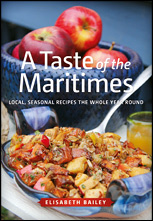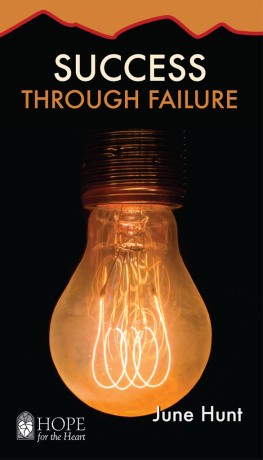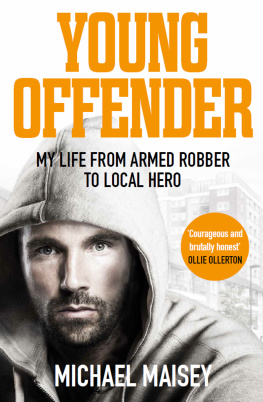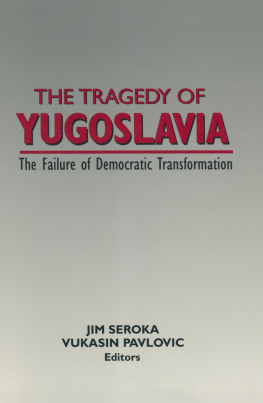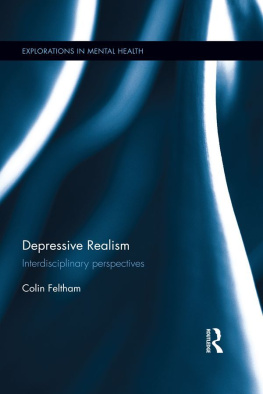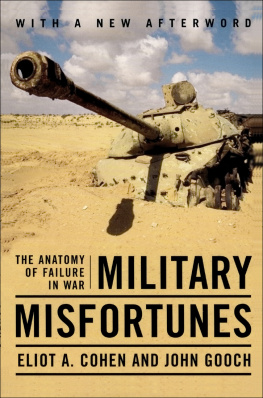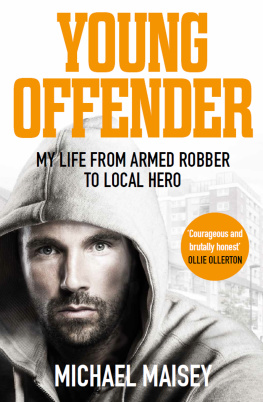Feltham - Failure
Here you can read online Feltham - Failure full text of the book (entire story) in english for free. Download pdf and epub, get meaning, cover and reviews about this ebook. year: 2014, publisher: Taylor and Francis;Routledge, genre: Religion. Description of the work, (preface) as well as reviews are available. Best literature library LitArk.com created for fans of good reading and offers a wide selection of genres:
Romance novel
Science fiction
Adventure
Detective
Science
History
Home and family
Prose
Art
Politics
Computer
Non-fiction
Religion
Business
Children
Humor
Choose a favorite category and find really read worthwhile books. Enjoy immersion in the world of imagination, feel the emotions of the characters or learn something new for yourself, make an fascinating discovery.

Failure: summary, description and annotation
We offer to read an annotation, description, summary or preface (depends on what the author of the book "Failure" wrote himself). If you haven't found the necessary information about the book — write in the comments, we will try to find it.
Failure — read online for free the complete book (whole text) full work
Below is the text of the book, divided by pages. System saving the place of the last page read, allows you to conveniently read the book "Failure" online for free, without having to search again every time where you left off. Put a bookmark, and you can go to the page where you finished reading at any time.
Font size:
Interval:
Bookmark:

Series Editor: Mark Vernon
From Plato to Bertrand Russell philosophers have engaged wide audiences on matters of life and death. The Art of Living series aims to open up philosophys riches to a wider public once again. Taking its lead from the concerns of the ancient Greek philosophers, the series asks the question How should we live?. Authors draw on their own personal reflections to write philosophy that seeks to enrich, stimulate and challenge the readers thoughts about their own life.
Clothes John Harvey
Commitment Piers Benn
Death Todd May
Deception Ziyad Marar
Distraction Damon Young
Failure Colin Feltham
Faith Theo Hobson
Fame Mark Rowlands
Forgiveness Eve Garrard and David McNaughton
Hope Stan van Hooft
Hunger Raymond Tallis
Illness Havi Carel
Love Tony Milligan
Me Mel Thompson
Middle Age Christopher Hamilton
Money Eric Lonergan
Pets Erica Fudge
Science Steve Fuller
Sport Colin McGinn
Wellbeing Mark Vernon
Work Lars Svendsen
Colin Feltham

First published 2012 by Acumen
Published 2014 by Routledge
2 Park Square, Milton Park, Abingdon, Oxon OX14 4RN
711 Third Avenue, New York, NY 10017, USA
Routledge is an imprint of the Taylor & Francis Group, an informa business
Colin Feltham, 2012
This book is copyright under the Berne Convention. No reproduction without permission.
All rights reserved. No part of this book may be reprinted or reproduced or utilised in any form or by any electronic, mechanical, or other means, now known or hereafter invented, including photocopying and recording, or in any information storage or retrieval system, without permission in writing from the publishers.
Notices
Practitioners and researchers must always rely on their own experience and knowledge in evaluating and using any information, methods, compounds, or experiments described herein. In using such information or methods they should be mindful of their own safety and the safety of others, including parties for whom they have a professional responsibility.
To the fullest extent of the law, neither the Publisher nor the authors, contributors, or editors, assume any liability for any injury and/or damage to persons or property as a matter of products liability, negligence or otherwise, or from any use or operation of any methods, products, instructions, or ideas contained in the material herein.
ISBN 13: 978-1-84465-523-6 (pbk)
British Library Cataloguing-in-Publication Data
A catalogue record for this book is available from the British Library.
Typeset in Warnock Pro.
For Michelle, der aldrig svigter mig
I am grateful to the series editor Mark Vernon for responding warmly to my initial proposal and for helping to shape it, and to Steven Gerrard at Acumen for his constructive suggestions.
Friends who have through conversation and emails contributed wittingly or unwittingly to many of the ideas and examples in this book include Craig Draper, Jack Feltham, Geoff Haines, Michelle Hansen, Stephen Niechcial, Mark Saltiel, Virginia Sherbourne, Matthew Simpson and John Simpson-Smith.
By the rules of the game and the nature of the subject I am bound to state that any shortcomings, failings and errors in this text are mine alone that is, unless they can be attributed to others faulty texts, erroneous cultural memes, poor parenting, dumb genes, lousy theistic design or cosmic failure.
Along with statements such as Youre fired, Im sorry to tell you that you have cancer and Im leaving you, statements containing the word or concept of failure, such as Youve failed your school exam/driving test/job interview, probably rank clearly among the bleak negatives, or low points, in our lives. Small wonder that the subject of failure is not at the top of most peoples favourites for dinner conversation, bedtime reading or even academic study. But I suggest that failure in one guise or another is pervasive, inescapable and has a great deal to teach us. On a personal level failure is usually successs ugly twin. Indeed, unsuccessful is synonymous with failed! This book is not only about personal failure but this is one of its starting-points.
I hope this book comes across as authentically diagetic (from Platos diagesis, the author speaking in his own voice), so let me give you a personal illustration. By some measures and in some peoples eyes I am very successful. I am an early-retired university professor (indeed, the only person from my original wider family to have even gone to university) and I enjoy a fair amount of respect in my discipline and profession. I have written many books. I am loved, have good friends, family and two beloved sons. I own my own house and car and have enough money to live on. I have travelled fairly widely. I am in reasonably good health and have quite a bit of leisure time. In many peoples fantasies I must be living the good life; certainly from the point of view of most people living in the developing world I am well off, well fed and very lucky. Few would call this failure.
However, we are raised to put the best face on these things and to conceal or play down the negatives. Like most lives, my life has had its good moments, successful spikes and peak experiences and periods of generally undisturbed well-being. But I have experienced depression and its always there in the background, uncured by therapy. Like many people, however successful I may appear, I often feel a mere whisker away from failure. I have two divorces behind me and several broken relationships. I became a professor quite late in the day, but in a subject that many regard as academically lightweight, and not the kind of high-status professor who brings in large sums of money for important research, sits on important committees and jet sets around the world. I became redundant about six months before starting this book and my pension is much more modest than that of most of my professional peers. My house is a small mid-terrace, my car is small and I cant really afford proper holidays. I often suffer from insomnia and am sometimes lonely. You could say that after some self-pity and adjustment at sixty, I have mostly come to accept all this. But my self-concept can shift from equanimity to a dark sense of failure. Maybe I can write quite well but can I sustain a very long-term relationship? I can write but Im almost completely impractical. I can write but not as well as many others. And so on.
Perhaps you can already see two themes emerging here. One is that self-disclosure tends to feel a little embarrassing: one is aware that it isnt quite the done thing. Failure is stigmatic and parading ones failures may be considered unwise. The second is that personal success and failure are relative. There are implicit pecking orders. I am more successful than some people, even at close relationships! My income is better than many people enjoy, my Peugeot 207 is five years old, not six or seven, and so on. On the other hand its pretty easy for me to think of friends in decades-long, happy-looking marriages. I know people whose income from pension schemes and other investments amounts to several times my income, whose house or houses are much larger and more expensive, who possess high-prestige cars and go on several annual holidays. I can certainly get eaten up with a sense of envy and failure. Alternatively, if I want to, I can think of one or two peers or individuals in a similar situation but who have less money but more
Font size:
Interval:
Bookmark:
Similar books «Failure»
Look at similar books to Failure. We have selected literature similar in name and meaning in the hope of providing readers with more options to find new, interesting, not yet read works.
Discussion, reviews of the book Failure and just readers' own opinions. Leave your comments, write what you think about the work, its meaning or the main characters. Specify what exactly you liked and what you didn't like, and why you think so.

